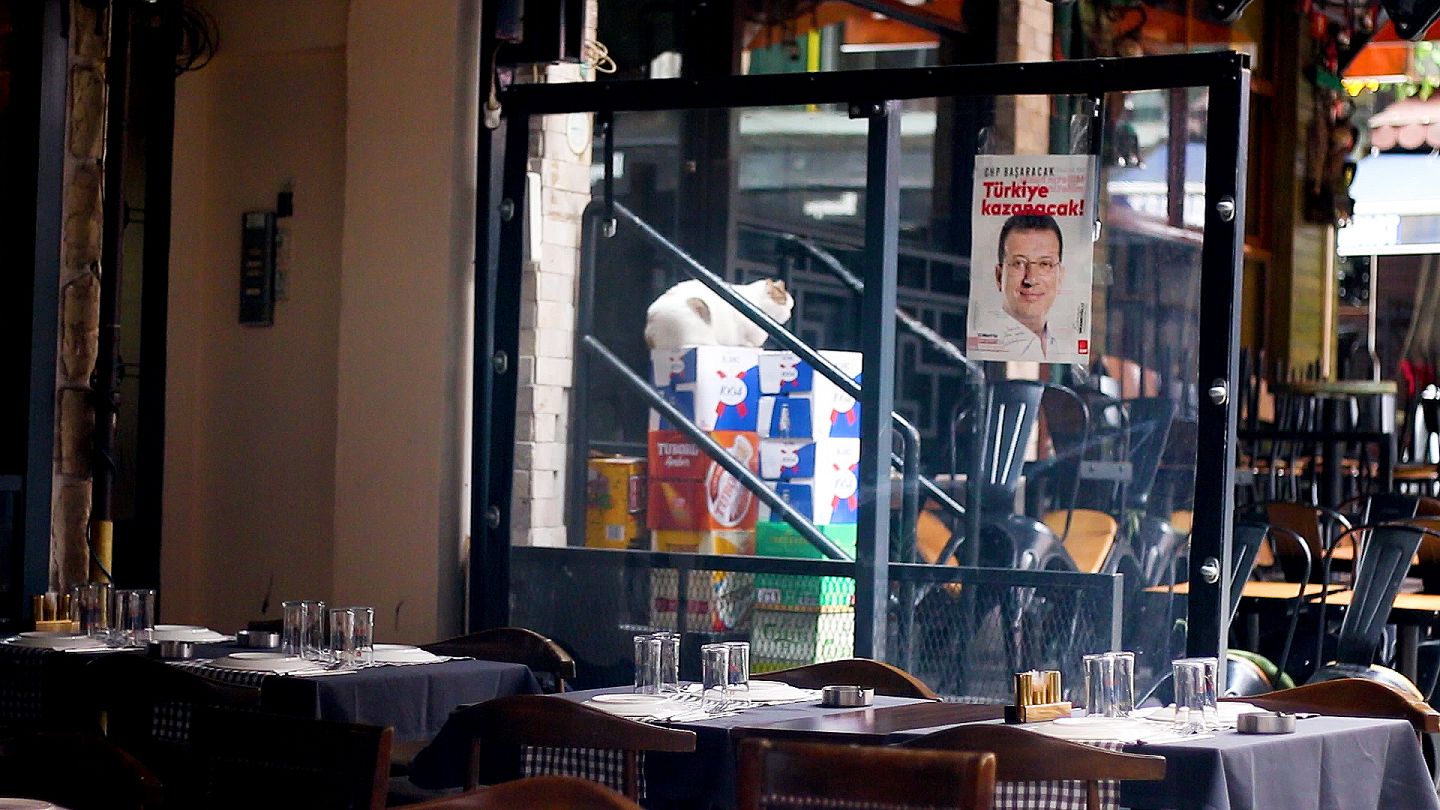A 3.4% boycott effect in areas with a high concentration of AK Party voters.
On April 3, 2025, the day after the boycott, face-to-face surveys conducted with 384 tradesmen and business employees in Ankara revealed that businesses experienced a 48% decrease in sales. The percentage of businesses that reported an increase in sales on the day of the action was only 7.8%.
The Community Studies Institute, based in Ankara, published a comprehensive report on the "consumption boycott" conducted nationwide on Wednesday, April 2. According to the report published on Monday by the Community Studies Institute, an average increase of 3.4% was observed in the density of six shopping malls located in Esenyurt, Başakşehir, and Güngören districts of Istanbul, where the ruling Justice and Development Party (AK Party) has a strong social base, as well as in the Yenimahalle and Keçiören districts of Ankara, the day after the boycott. Conversely, the density change rate in six shopping malls located in Şişli, Sarıyer, and Beşiktaş districts of Istanbul, where the Republican People's Party (CHP) has a strong social base, and in the Çankaya district of Ankara, was found to be an average increase of 19% from April 2 to April 3. To determine the level of participation in the boycott, the Community Studies Institute report utilized "popular times" data provided by Google Maps to measure the density levels of shopping malls in Istanbul and Ankara, stating: "When the two tables are evaluated together, a meaningful comparison can be made regarding how the boycott resonated across different segments of society. On the boycott day of April 2, there was a very limited decrease in districts where ruling party voters predominantly reside, while a significant decrease was observed in areas where opposition voters are concentrated."
Sales of tradesmen in Ankara decreased by 48%. The Community Studies Institute also examined the effects of the boycott on the capital's businesses in addition to shopping mall density levels. According to the results of face-to-face surveys conducted with 384 tradesmen and business employees in Ankara on April 3, 2025, a 48% decrease in sales was observed (33.4% reported "decreased," 14.6% reported "decreased significantly"). The report recorded that 43.9% of businesses stated that the boycott action did not affect their sales. Only 7.8% of businesses reported an increase in sales. According to the results of 384 interviews conducted face-to-face with tradesmen and business employees in Ankara, 47.5% of businesses with 1-5 employees reported that sales had decreased (14.6% "decreased significantly," 33.4% "decreased"). The percentage of businesses with 1-5 employees that stated the boycott did not affect their sales was 43.8%. Only 9.2% reported an increase in sales. For businesses with 11 or more employees, a decrease of around 56% was recorded (16% "decreased significantly," 40% "decreased"). The percentage of businesses stating that the boycott did not affect sales was 42%, while only 2% of these businesses indicated that there was an increase in sales.
"Can the boycott achieve its goal?" Among the businesses or their employees participating in the survey prepared by the Community Studies Institute, 47% responded "yes, I believe it is right" to the question "Do you find the boycott action appropriate?" The percentage of those who disagreed was 43.3%. Meanwhile, 9.7% stated, "I do not find the boycott appropriate, but the opposition has no other options." Additionally, when asked if the boycott would achieve its goal, 51% of participants answered "no," while only 10.4% said "yes." On the other hand, 29.2% of participants linked the success of the boycott to public participation, while 10.4% assessed it as dependent on how opposition figures would conduct the process.
April 2 Boycott Numerous students from schools such as Istanbul University, Galatasaray University, and Boğaziçi University pledged not to engage in any buying or selling on Wednesday, April 2. University students decided to refrain from making any purchases for a day, transforming this action into a political stance through economic pressure beyond just being a consumer action. Many political figures, including CHP leader Özgür Özel, as well as businesses and social media influencers, announced their participation in the boycott. Participants in the April 2 boycott avoided consumption for a day by using their economic power. No products or services were purchased from supermarkets, stores, restaurants, or cafes. No orders were placed on e-commerce platforms. Credit cards were not used, and no money transfers were made. CHP leader Özgür Özel also supported the April 2 boycott. In a post on X, Özel stated, "I invite everyone to participate in this boycott and use their power that comes from consumption." Minutes after Özel's support, the Istanbul Chief Public Prosecutor's Office announced that an investigation had been launched regarding the economic boycott campaign. In a written statement, it was said, "The Istanbul Chief Public Prosecutor's Office has launched an investigation into individuals who spread divisive rhetoric known to the public as 'boycott' calls aimed at preventing a segment of the public from engaging in economic activity, under the charges of 'hate and discrimination' and 'inciting the public to hatred and hostility.'" Following this, Commerce Minister Ömer Bolat stated that tradesmen who suffered 'financial loss' due to the boycott calls had the right to file a compensation lawsuit under the law of obligations. Bolat characterized the boycott calls as an attempt of "sabotage" against the economy, saying, "Especially unfair trade contains elements of competition. We see this as a futile attempt by those who consider themselves the masters and owners of the country, acting with the mindset of 'whatever we want happens,' who have been disappointed for 22 years, and who have reached the arrogance of viewing the vast majority of our people as second-class citizens while seeing themselves as first-class superior citizens, engaged in a class superiority struggle within the luxury and profit margins of a narrow framework."


